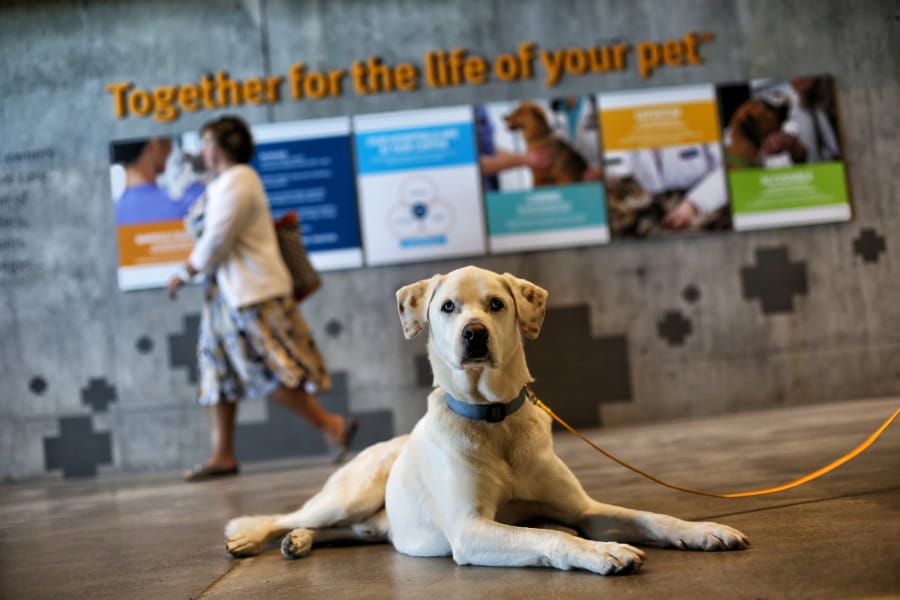Being a veterinarian isn’t all wagging puppies and purring kittens.
While one could perceive the profession as constantly fun, filled with visits from cats, dogs and other lovable animals, veterinarians have a unique set of risk factors that have led to increased suicide rates in the profession over the last four decades.
According to a 2018 Centers for Disease Control and Prevention study analyzing 11,620 U.S. veterinarian deaths between 1979 and 2015, suicide rates for male veterinarians were 2.1 times higher than the general population, and suicide rates for female veterinarians were 3.5 times higher than the general population. More than 60 percent of veterinarians are women, and while the proportion of female veterinarians who died by suicide has stayed at 10 percent since 2000, the total number of deaths has risen.
The same study discovered one in 10 veterinarians suffer from serious psychological stress such as compassion fatigue, anxiety and depression, while about one in three has experienced depressive episodes. One in six has thought about suicide since graduating from veterinary school.
The reason for increased suicide rates include financial debt and pressure, stress from long hours and an unhealthy work-life balance, and sadness tied to treating sick animals.
In response, Vancouver-based Banfield Pet Hospital has implemented a health and well-being program for its thousands of associates spread across the U.S. and Puerto Rico. Lisa Stewart-Brown, a licensed social worker, was hired about a year ago to manage the program.
“I don’t really think folks that go into this profession anticipate the amount of intense emotions,” Stewart-Brown said. “The reality is if you’re sitting there next to somebody who is losing their best friend because it’s the end of their life and they’re grieving — if you’re just in that room, you’re going to feel those emotions. And then if you’re an empathic person, and you love pets, you’re going to feel it even more so. I don’t think they really anticipated the toll that takes, and I don’t think they necessarily built the skills to manage that. That’s one the biggest challenges for our associates is to help them build that skill set.”
Stewart-Brown said the program takes a “holistic approach” to mental health. Instead of just focusing on treating depression and anxiety, the program aims to address the root causes of mental health problems. Stewart-Brown said bringing feelings and emotions into the open, and learning how to deal with them, is probably the biggest challenge to reversing veterinarian suicide rates.
“They’re very good at walling up and being very professional, but then they are not always taking care of themselves, and it builds up,” Stewart-Brown said. “In my profession as a social worker, we knew going in that this was going to be heartbreaking work, and so we talk about it out loud — we talk about what we do to prevent us from burning out or getting secondary post-traumatic stress. In the veterinary medicine space, that’s not the reality.”
Banfield has targeted reducing associates’ student loan debt, since it is common and costly in the profession. According to the American Veterinary Medical Association, veterinarians graduate owing an average of $167,000 in student loans. The average starting salary for a Banfield veterinarian is about $85,000.
As part of the health and well-being program, Banfield pays $150 a month to each associate’s loan organization, which can also help associates refinance loans at lower interest rates, said Molly McAllister, Banfield’s chief medical officer.
In a year and a half, Banfield has paid off more than $4 million of its associates’ combined debt load. McAllister and Stewart-Brown said the health and well-being program has been shaped through CDC research on the best suicide prevention intervention strategies. Banfield offers its associates discounted gym memberships at national chains, provides child care subsidies and can help connect veterinarians and other household members to counseling services.
“The tide is really turning,” McAllister said. “We used to just deliver people to the profession and say, ‘This is what you signed up for. You do this because you love it and this is your job.’ And now we can say, ‘What you signed up for is really hard and we recognize that now, your peers recognize that, and your colleagues recognize that.’ ”
McAllister and Stewart-Brown said they’re seeing an uptick in the utilization of their mental health services, which makes them believe it’s having a positive impact. Banfield is also presenting its program and research at veterinary conferences. The hope is that other clinics adopt health and well-being programs, too.
“This has been a long-term problem for the veterinary profession,” McAllister said. “The reality is where we’ve gotten to as a profession is how our society has changed. What people look for as a profession has changed. We can no longer sustain a profession where people are anxious, where they don’t feel like they can talk about what’s bothering them. We need to find solutions.”




